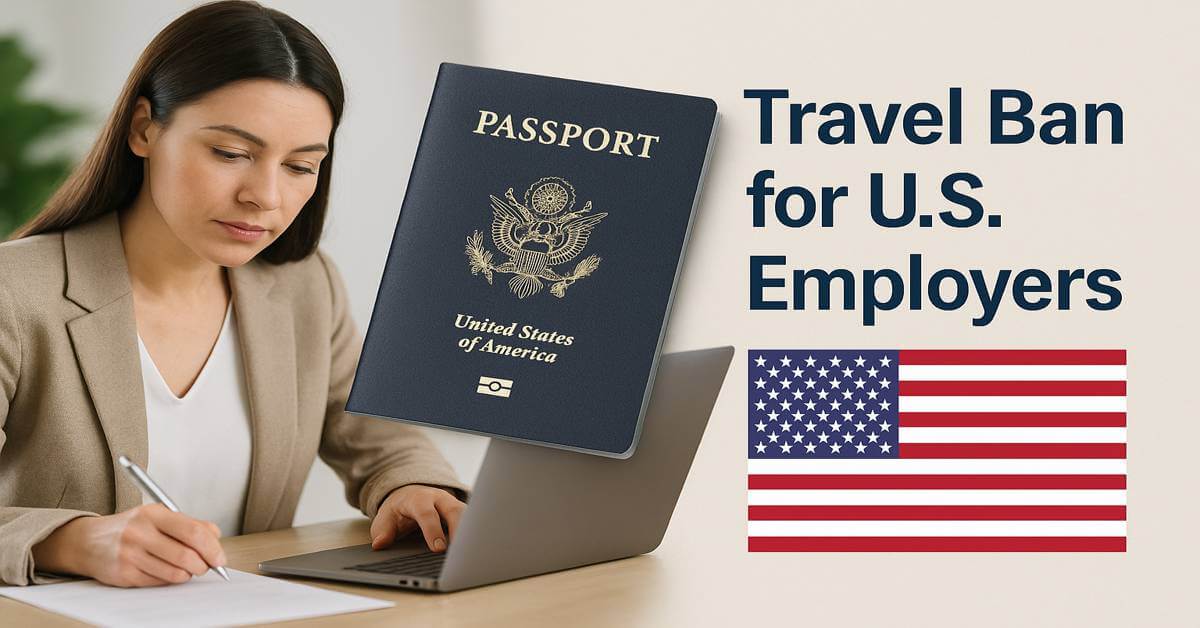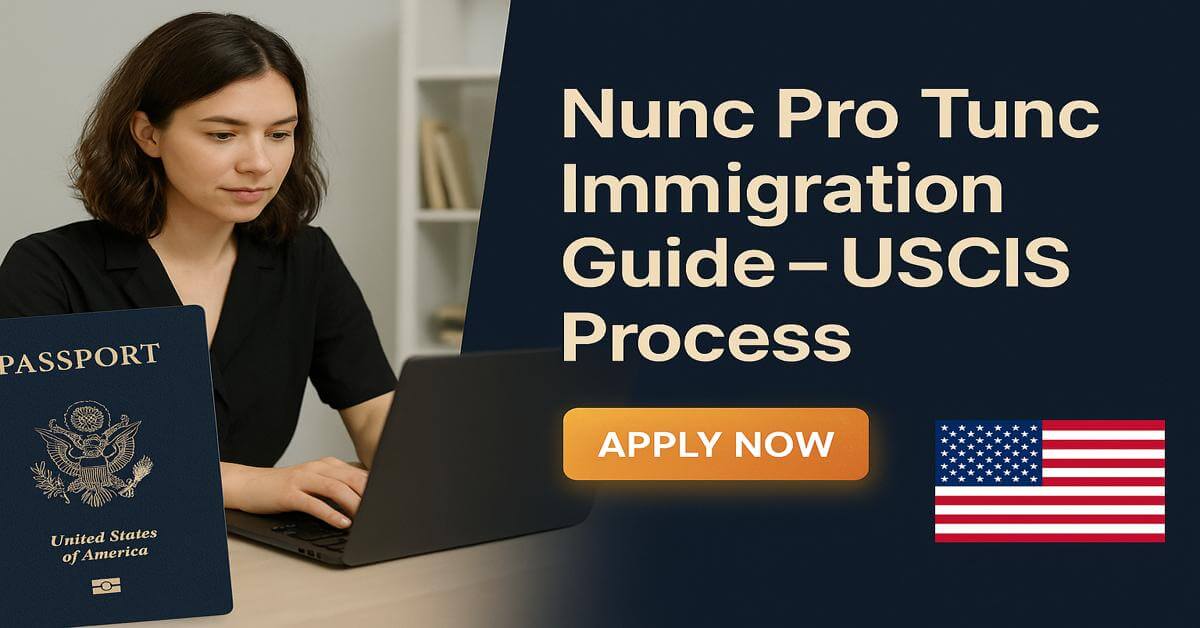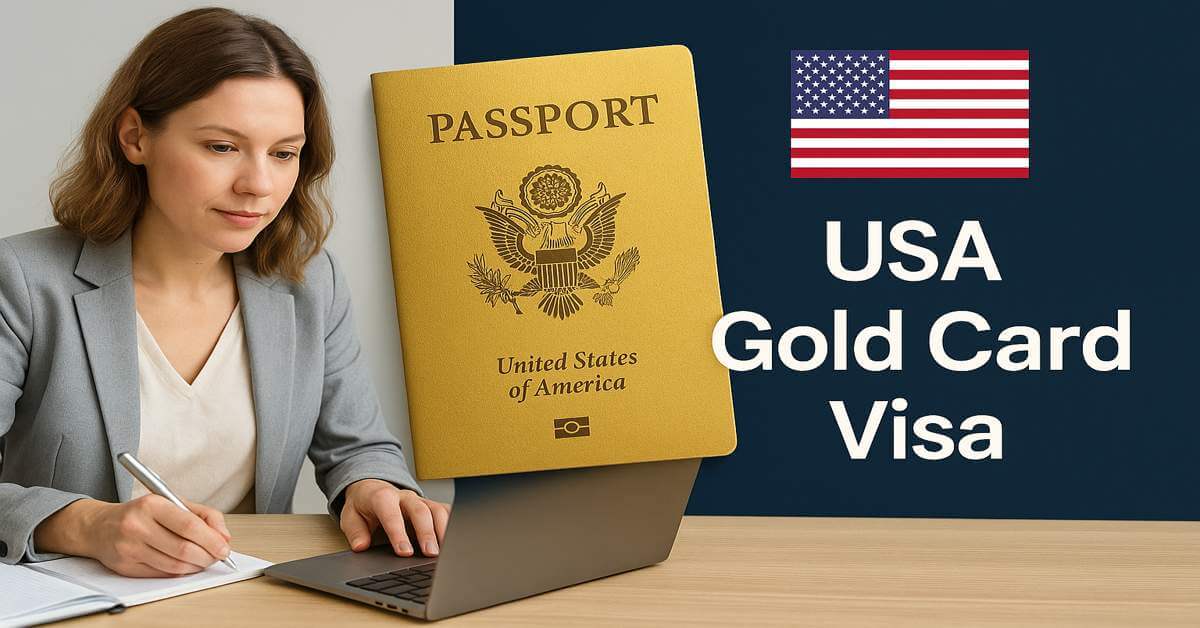U.S. government reinstated a broad travel ban affecting nationals from 19 countries. This policy restricts or blocks visa issuance for millions, impacting employers and workers in critical industries such as healthcare, technology, education, and essential services.
Fully Banned Countries :
- Afghanistan
- Iran
- Myanmar
- Chad
- Republic of Congo
- Equatorial Guinea
- Eritrea
- Haiti
- Libya
- Somalia
- Sudan
- Yemen
Countries with Partial Visa Restrictions:
- Burundi
- Cuba
- Laos
- Sierra Leone
- Togo
- Turkmenistan
- Venezuela
Individuals from these partially restricted countries cannot obtain permanent immigrant visas or tourist/student visas. Work visas may be issued only in limited cases through case-by-case waivers, often with shortened validity.
Check Also: Form I-407 to Abandon Permanent Resident Status
Exceptions to the Ban Include:
- U.S. green card holders (Lawful Permanent Residents)
- Certain Special Immigrant Visa (SIV) holders, such as Afghans who assisted U.S. forces
- Adoptions and holders of diplomatic or international organization visas (A, G, NATO categories)
For the latest official updates, please consult the U.S. Department of State travel restrictions and U.S. Citizenship and Immigration Services (USCIS).
Industry-Specific Impacts:
Healthcare
- Immigrant healthcare workers from banned countries fill critical roles in underserved areas.
- Iranian doctors often enter on J-1 visas for residencies in specialties like internal medicine and psychiatry.
- The ban restricts new arrivals and visa renewals, worsening staffing shortages in elder care and hospital support.
Technology and STEM
- Many Iranian nationals contribute as Ph.D. candidates, postdocs, and skilled workers in AI, engineering, and cybersecurity.
- The ban complicates visa issuance and renewals (H-1B, F-1 OPT), disrupting hiring and mobility.
Education and Research
- Universities depend on faculty and graduate students from banned countries.
- Staffing gaps may arise in engineering, medical research, and sciences, potentially reducing international enrollment and funding.
Skilled Trades and Manufacturing
- Refugees and immigrants from Sudan and Congo support manufacturing sectors in key states.
- Family-based immigration pathways for these workers are now blocked.
Agriculture and Essential Services
- Haitian workers in agriculture, hospitality, and maintenance face visa challenges, exacerbating labor shortages during peak seasons.
Challenges for Employers:
- Hiring Bans: Employers cannot sponsor workers from the 12 fully banned countries.
- Visa Limitations: Workers from partially restricted countries face limited visa options with shortened durations.
- Employee Travel Risks: Staff traveling abroad may experience reentry difficulties.
- Processing Delays: Increased scrutiny and Requests for Evidence (RFEs) will slow visa approvals.
Previous travel restrictions:
Employers can apply valuable insights from previous travel restrictions to prepare effectively:
- Legal Preparedness: Maintain up-to-date immigration records and work closely with legal counsel.
- Employee Support: Offer emergency funds, counseling, and legal consultations to impacted workers.
- Plan for Disruptions: Flag high-risk roles, update travel policies, and enable remote work when possible.
- Corporate Leadership: Take a public stance supporting affected employees to maintain trust and reputation.
Steps Employers Should Take Now:
- Review Your Workforce: Identify employees and applicants affected by nationality or visa type.
- Adjust Hiring Strategies: Focus recruitment on countries not on the banned list. Consider remote or international roles.
- Consult Immigration Experts: Explore alternative visa pathways and compliance strategies.
- Conduct Compliance Audits: Regularly check I-9 records and visa statuses to prepare for government scrutiny.
- Communicate Transparently: Keep employees informed about policy changes and support options.
Additional Resources:
Conclusion:
The travel ban presents significant challenges but with proactive planning, legal guidance, and supportive workplace policies, employers can mitigate risks and continue to build diverse, talented teams.
Frequently Asked Questions:
Are there exceptions to the travel ban?
Yes, exceptions include U.S. lawful permanent residents (green card holders), certain Special Immigrant Visa (SIV) holders, adoptees, and holders of diplomatic or international organization visas (A, G, NATO categories).
What is the U.S. travel ban about?
The travel ban restricts or blocks visa issuance to nationals of 19 countries, affecting immigrant and non-immigrant visa access. It aims to tighten immigration controls and affects industries relying on global talent.
Which countries are fully banned from receiving U.S. visas?
The 12 countries under a full visa ban are Afghanistan, Iran, Myanmar, Chad, Republic of Congo, Equatorial Guinea, Eritrea, Haiti, Libya, Somalia, Sudan, and Yemen.






